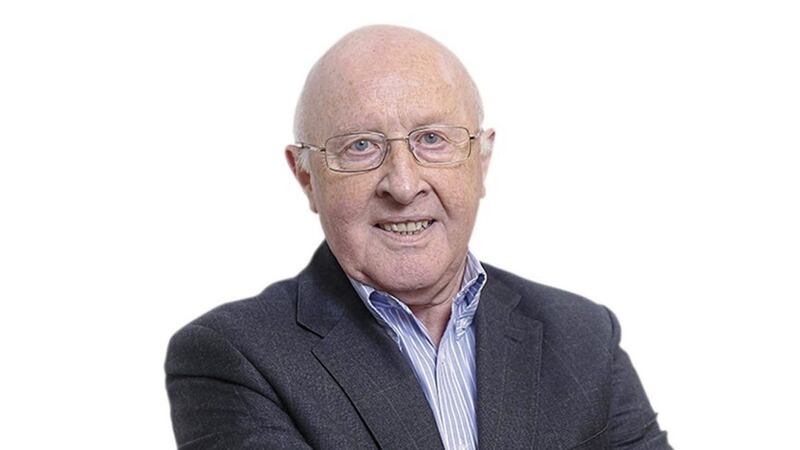THERE’S a new book about the negotiations between Ireland and Britain in the three years leading up to the 1985 Anglo-Irish Agreement which broke the mould which had been created by the 1921 Treaty.
Called The Making of the Anglo-Irish Agreement, the book is largely based on diary entries by Sir David Goodall, then Deputy Head of the Cabinet Office and later Deputy Head of the Foreign Office.
Those are supplemented by some extracts from official papers from the time, now released under the British 20-year rule.
As you’d expect, there are many revealing details about British attitudes to the north, some surprising, others less so, such as the repeated efforts the NIO made to sabotage the negotiations until, in the end, they were pretty well excluded from the negotiations.
Indeed it’s likely the whole process would have failed if it had not been conducted between the Taoiseach’s Office and the Cabinet Office with some input from the Foreign Office thanks to Goodall’s role there.
Goodall’s first ever visit to the north was in autumn 1983 which, given the prevailing security circumstances, was an eye-opener.
However, he was also struck by the blinkered thinking among senior civil servants. “Everything focussed on the UK. All statistical comparisons quoted were with the rest of the UK: comparisons with the Republic were simply not thought relevant enough to be available.”
The only department which referred to “the need for any sort of practical cross-border arrangement” was the Dept of Agriculture but only “in the shape of an all-Ireland regime for animal health”.
The only person who exhibited any sort of an open mind was George (later Sir George) Quigley, permanent secretary of the Dept of Finance. You may remember that later Quigley, when chair of the Ulster Bank, used to advocate a business corridor between Dublin and Belfast. Otherwise, as Goodall noticed, “the Republic seemed to exist only on the periphery of people’s professional awareness”.
It seems that 36 years later very little has changed. All comparisons are still made with “the rest of the UK” no matter how inappropriate or irrelevant to conditions, economic, social or political on this island.
Recently in the hot weather this place was even lumped in absurdly with the UK as a meteorological entity with unionists, and of course the BBC (same thing?), rejoicing that Castlederg was, altogether now, the hottest place in the UK. Ah well, at last the north topped a list, however ridiculous.
On a more serious note, however, the unionist worm’s eye view mindset persists at the highest levels in the civil service, strongly reinforced by unionist politicians.
You’ve only to look at the recent DUP proposals on what passes for an economic policy: a stupid refusal to extend the south’s Wild Atlantic Way through Derry to the north coast to increase the number of tourists staying in Derry before continuing to Ballycastle; the refusal to countenance the reality of an all-island economy; the refusal to talk up the unique benefits of the Protocol giving access to both EU and GB.
On a macro level, however, there’s a refusal to ask the serious questions.
Why is it that in 1920, 80 per cent of the industrial output of the island came from the three counties around Belfast, but now the north is impoverished?
Why is the Republic’s economy four times larger, generated by a work force only two and a half times bigger?
Why is the Republic’s industrial output 10 times that of the north? Why are exports from the Republic 17 times greater than those from the north, and average income per head in the Republic dwarfs that in the north?
Why does no unionist admit that rejecting the Irish revolution and clinging to the union crippled the north so that, as the economist David McWilliams concludes, the north is like the old east Germany to the south’s West Germany?
Visit Dublin. Have a look.








